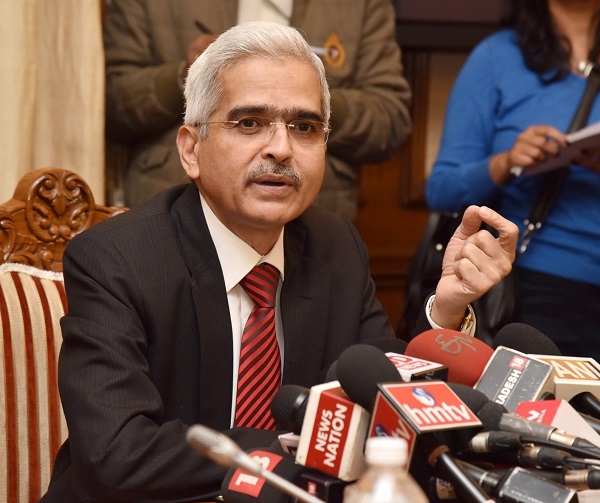Mumbai, Reserve Bank of India (RBI) Governor Shaktikanta Das on Thursday said global slowdown, trade and geopolitical tensions currently pose major downside risks for the Indian economy, while volatile crude prices also have the potential to increase the country’s current account deficit.
“Overall the outlook for India’ external sector is one of cautious optimism, albeit with some downside risks accentuated at this juncture”, Das said at an event here.
Listing the risks, Das said that deepening of the global slowdown and escalation of trade and geopolitical tensions appeared to be the most significant.
Das, however, also noted that there are underlying economic strengths that can be built upon to act as buffer to these risks.
The search for new export and niche markets must go on so as to reap the benefits of the changing dynamics of global value chains, he added.
The Governor also said that Indian IT companies need to accelerate market diversification and invest in new skills and technologies to hone their comparative advantages.
Remittances and non-resident deposits are likely to remain shock-absorbers over the medium term and need to be assiduously cultivated, including by ease of remitting and depositing, as well as reducing transaction costs, the Governor noted.
Besides, “investors and markets need to be credibly assured of our ability to maintain macroeconomic and financial stability through continued focus on these areas,” he said.
“At the same time, we need to persevere with structural reforms in various sectors of the economy to unlock productivity and competitiveness gains. The overarching objective should be to keep the current account deficit within sustainable limits and financed by a prudent mix of debt and equity flows,” he said.
“The global environment is challenging, but it offers opportunities as well. By the IMF’s assessment, India will account for a sixth of global growth in 2020. Trade wars are presenting new business relocation avenues that seem to be favourable to India from the point of view of the economies of scale and scope,” Das added.
According to the RBI Governor, Indians, Indian entrepreneurship and the rupee are progressively internationalising.
India’s working-age population has grown larger than the dependent population, and this demographic advantage is expected to last till 2055.
“In this milieu, prudent external sector management with a close and continuous vigil on areas of external vulnerability assumes critical importance and will continue to receive RBI’s close attention,” he said.









